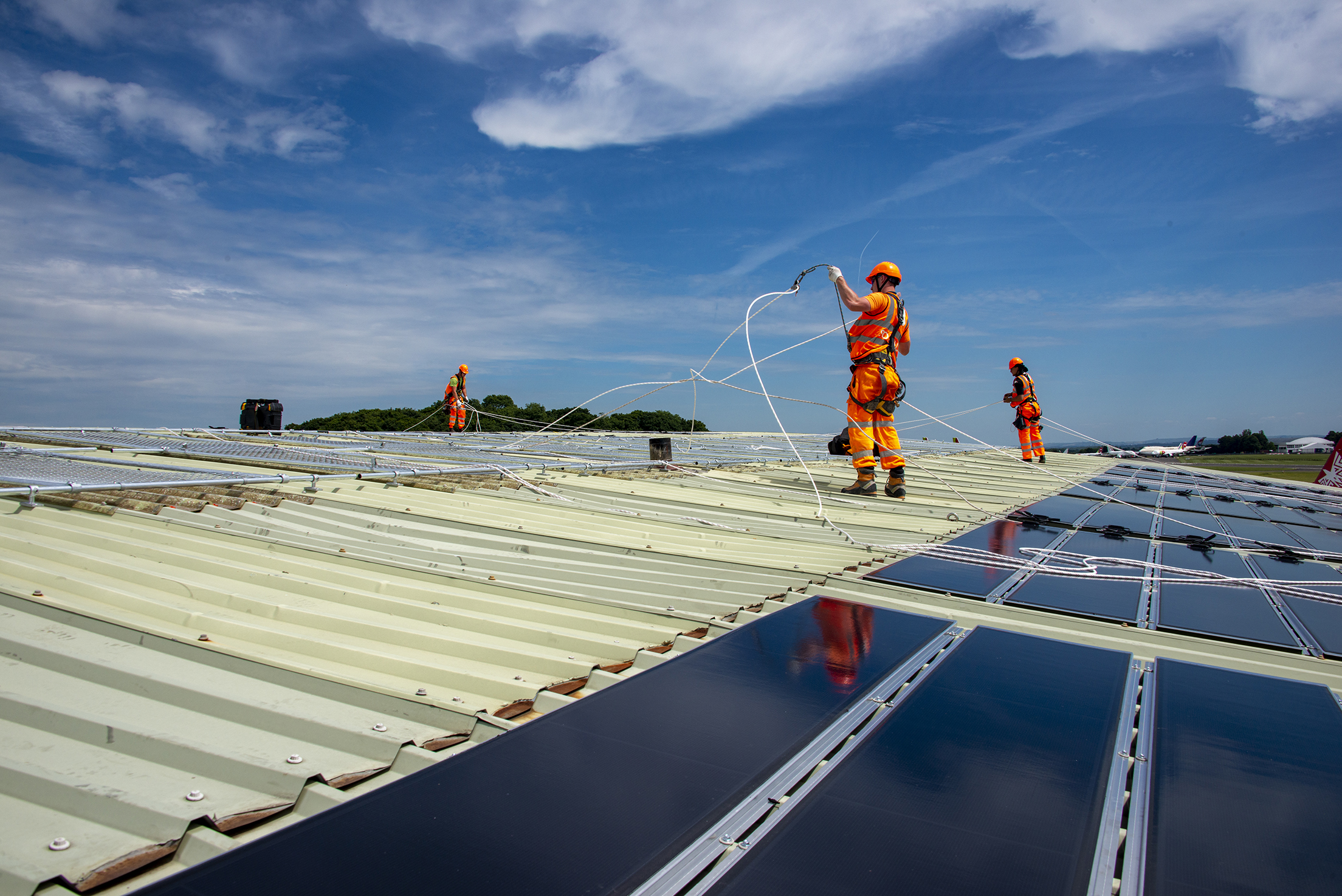Following the release of the Government’s Industrial Strategy, a leading solar authority has asserted that – while sharpened focus on the progress of clean energy provides a positive step in the right direction – it’s crucial that ambition is met with decisive, progressive action.
Launched on Monday 14th October, the Government’s new Industrial Strategy, the first in seven years, aims to set out a credible 10-year plan to reignite the UK’s major industries and kickstart economic growth. The strategy sits alongside a new advisory council, and a green paper ahead of the international Investment Summit.
Among the eight growth-driving sectors, the green paper identifies clean growth as a major pillar of the strategy, with substantial investments planned in renewable energy and green technologies.
With this in mind, lightweight solar pioneer, Solivus, believes the new strategy will come as welcome news for companies looking to build better sustainability into their operations who may have until now faced a myriad of obstacles such as an insufficiency of available support, educational deficits and lack of governmental stimuli.

Jo Parker-Swift, CEO and founder of Solivus, comments: “We’re pleased to see the publication of the Industry Strategy Green Paper – aimed at driving economic growth while delivering a just net-zero transition. In particular, the recognition of the clean energy sector as a key enabler of economic growth are hugely welcome and reflective of our sector’s strategic importance in the journey to energy independence and economic security.
“But it must deliver on the promises made with decisive, progressive action. This means placing green in everything, using infrastructure to unlock net zero, backing businesses to go green, and introducing green policy and stimulus that leverage the insight and ambition clearly evident within the sector to drive change.
“The UK was the first major economy to set a legally binding target to reach net zero greenhouse gas emissions by 2050. Yet sadly the reality is that a recent tirade of stop-start energy policies and watered-down net zero commitments have seen us take a backseat, while other major economies are racing ahead with their energy transitions.
“With the right policy action, support and investment, we still have a chance for the UK to enhance its standing as a leader in the global race to net-zero – but we must act now.”
The strategy comes as a recent analysis revealed that less than 10% of the UK’s non-domestic buildings are utilising their available rooftop space for solar energy.1 A separate report suggests that by fully utilising the available rooftop space it is estimated that commercial buildings could save £35 billion, with lifetime savings reaching £703 billion.1
At the same time, the Industrial Strategy Green Paper highlights the fact that energy prices in Germany are 34% to 39% lower than for comparative businesses in the UK of any
size, while in France they are 31% less for small businesses rising to 53% for the very
large. On average, very large UK energy users face relatively high electricity prices
compared to EU competitors (£228/MWh in 2023, compared to £108/MWh in France and
£148/MWh in Germany), coming as a major barrier to growth and investment.
With this, Solivus continues to champion the untapped commercial solar opportunity as a key enabler of a low carbon economy. Jo adds: “In recent years, there has been a clear target to increase solar capacity by nearly fivefold to 70GW by 2035 as part of wider plans to power up Britain with cleaner, cheaper and more secure energy sources. Yet, the large majority of commercial buildings – offering vast, unobstructed canvases for rooftop solar generation – simply aren’t being used.
“This is a colossal missed opportunity on multiple fronts: lower electricity costs, emissions reductions, energy security and improved green credentials on a world stage. It is our hope that the Industrial Strategy sets out a clear roadmap and lasting support for commercial solar which we believe will play a key role in making the economy stronger as well as more sustainable in the years ahead.”



























